With the new season underway do you know your Cofidis from your CCC, Michelton from Movistar? Do you know what the EF in EF Education First stands for? No, it’s not Education First and the answer’s below and you can also learn what all the World Tour team title sponsors do.
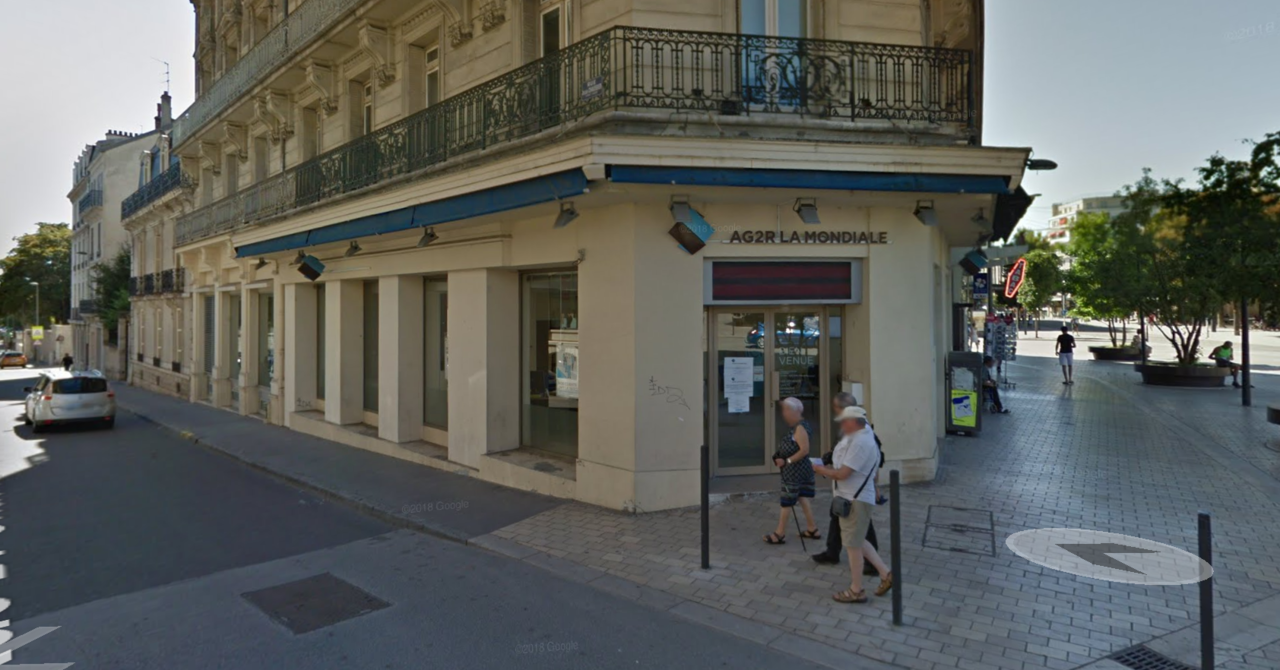
Ag2r La Mondiale is a French social insurance company, offering health insurance and pension plans to savers in France. It’s mutually-owned and has grown via mergers to become one of France’s biggest insurance companies with 650 agencies across France.
- Title sponsor since 2000 and the team was founded in 1992 as Chazal
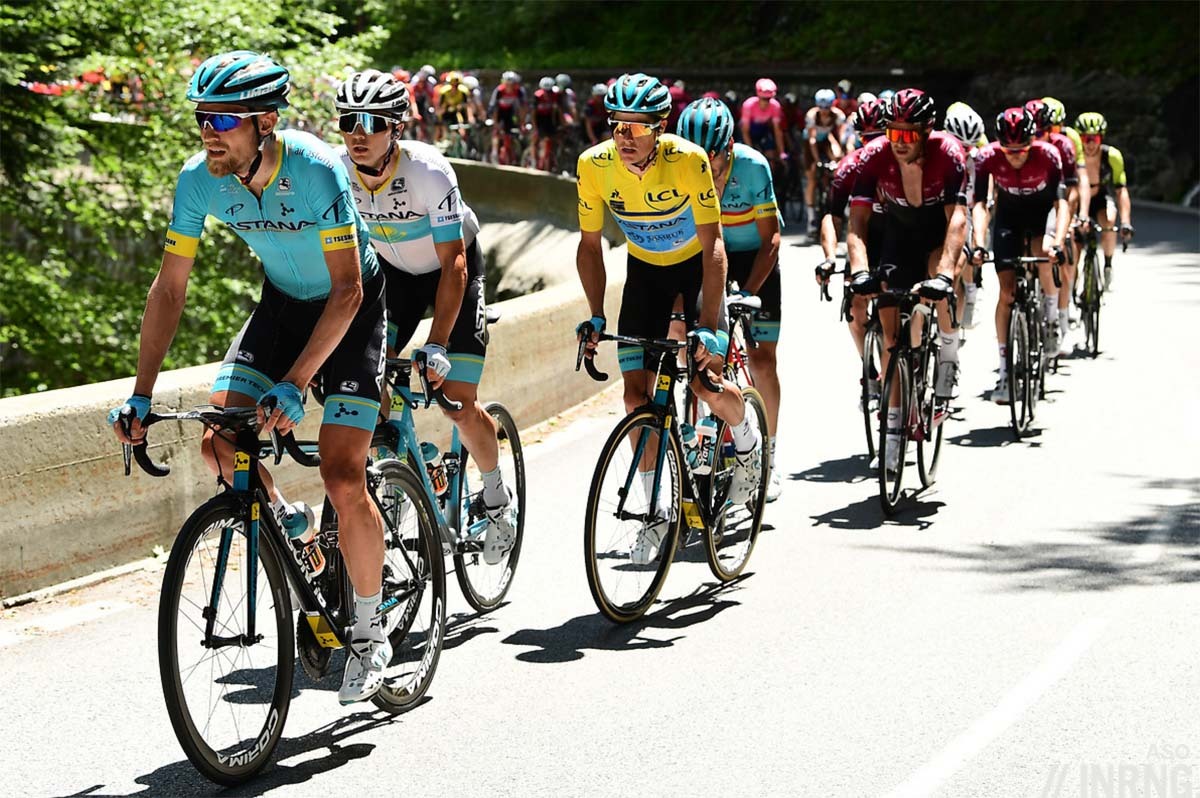
Astana was the capital of Kazakhstan – it means “capital” in Kazakh – but the city has be renamed Nur-Sultan. The name lives on with team and it rides to promote the country although given the scandals over the years it’s not always made the country bask in glory although how much the negative headlines cost versus the wins gain is another matter.
- Title sponsor since 2007 when the team was born out of the ashes of the Liberty Seguros team which was engulfed by Operation Puerto
Bahrain-McLaren is backed by the oil-rich island in the Middle East. It’s harsh regime that sits right at the bottom of the press freedom index and other scores but this blogger better say nice things about because you can get jailed for tweeting criticism. It’s a case study in “sportwashing”, the use of a sports team and so far seems rather successful, outlets sceptical about the recent Saudi Tour seem happy to run with features promoting the Bahrain team and it’s backer… a close ally of Saudi Arabia. New for 2020 is the McLaren name but the sports car manufacturer is owned by Bahrain’s sovereign wealth fund so it’s partly an internal affair but the team will offer publicity and promotion for the brand which could be heading for a stockmarket listing.
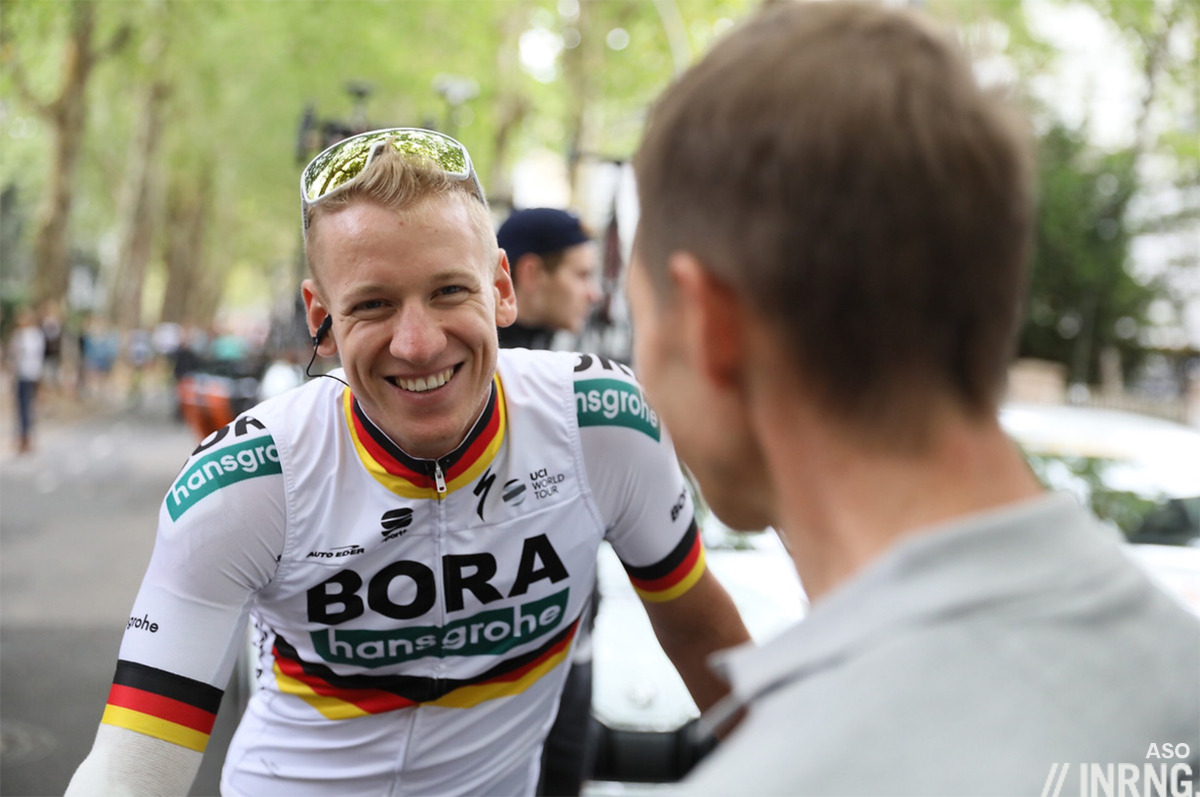
Bora-Hansgrohe is a German team sponsored by two Mittelstand manufacturers. Bora makes kitchen extractor fans with the selling point that the fans are located beside the cooking hob rather than above them and the firm has experienced prodigious growth since it started sponsoring a team. Hansgrohe make plumbing parts like taps and shower heads and if they have a Germany history since being founded by Herr Hans Grohe in 1901 are these days majority owned by US conglomerate Masco. Don’t confuse them with arch rival Grohe, the plumbing version of Adidas vs Puma. The silent partner is Specialized, the influential bike brand was instrumental in bringing Peter Sagan to the team.
- The team started in 2010 as Team NetApp
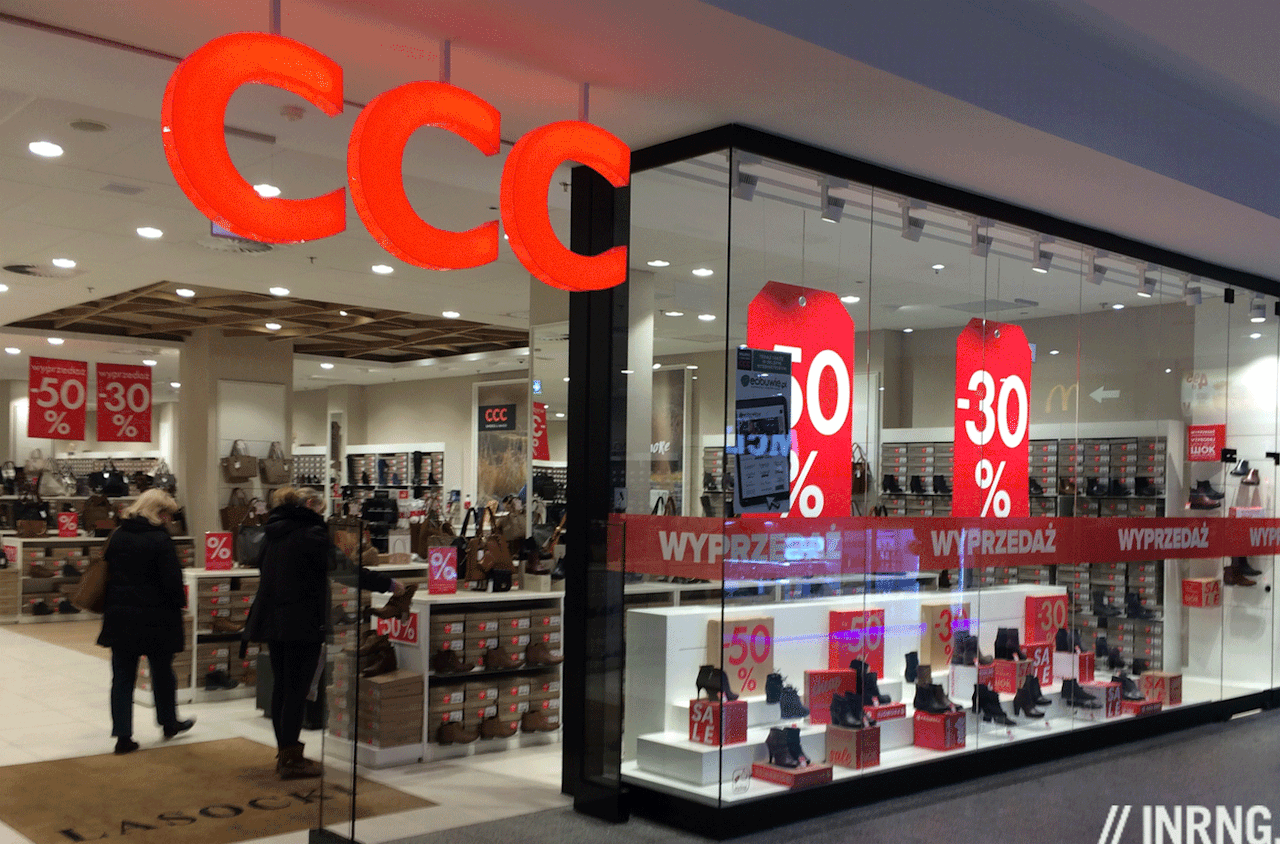
CCC is a Polish footwear retailer with some manufacturing too. It started in the 1990s as Cena Czyni Cuda which translates as “the price makes wonders” and it’s a philosophy that’s sustained the company ever since, it stamps on costs. Visit a store and boxes are piled high with shoppers taking out of shoes themselves to try for size rather than an assistant bringing them out from a store room, this means fewer staff and more retail space. It also appears to hold a perpetual sale which adds to the discount vibe. All this has made founder Dariusz Miłek a billionaire and CCC is one of the Polish stockmarket’s 20 biggest firms. What started in Poland is now international with a push into Germany, Russia and Switzerland and the pro team will help with marketing, if you’ve seen the Sprandi name on the jersey it’s a brand owned by CCC.
- Miłek has sponsored the old BMC team which can be traced back to 2006, the same year in which the CCC team also got underway, today’s team is the old BMC team plus some CCC team with the old CCC team now acting as their development squad
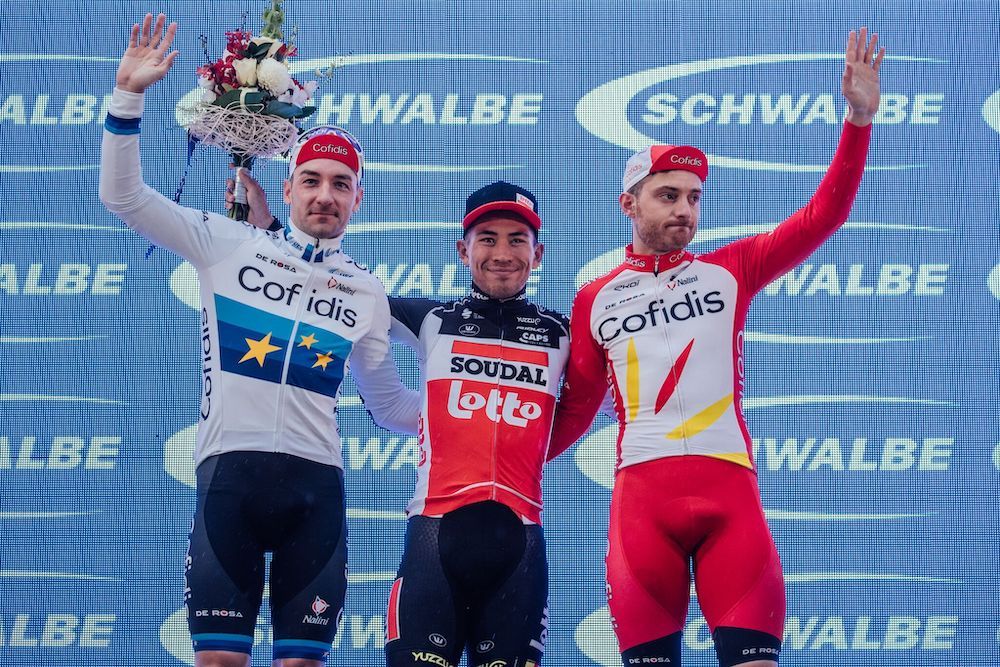
Cofidis are new in the World Tour but are such an old team they were in the Pro Tour years ago and have existed since 1997. It’s backed by a French consumer lending company which has now expanded to offering loans in Spain, Italy and central Europe making the cycling team a useful marketing tool. Ultimately Cofidis is now part of the Crédit Mutuel financial group which also owns online bank Arkéa, sponsor of the second tier Arkéa-Samsic team.

Deceuninck-Quick Step is still awkward to spell. Deceuninck is a Belgian maker of PVC windows and cladding, mainly for industrial and office buildings and has sales across Europe and North America, it’s on the Euronext stock exchange with a market value of €270 million today. Co-sponsor QuickStep may seem quintessentially Flemish but it belongs to company founded in Amsterdam… Amsterdam, New York called Mohawk Industries, a giant supplier of commercial and residential flooring. It all vibes construction sites which part explains the blue overalls team kit but Zdeněk Bakala is the majority owner and the Czech billionaire is said to fund the team as well giving them a white collar touch too.
- Quick Step’s sponsorship began in 2003 but the team is an assembly of mergers over the years and can be traced back to the 1990s
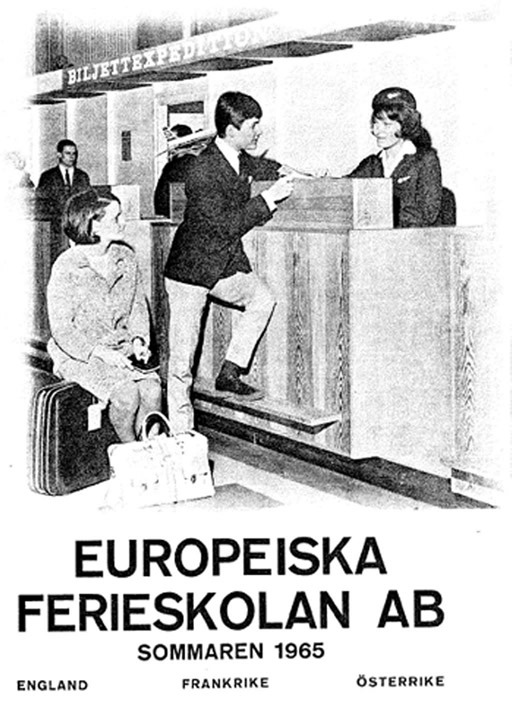
EF Education First Pro Cycling is a language education business that was started in Sweden and now HQ’d in Switzerland, presumably for tax rather than sunshine. EF Education First sounds repetitive but the initials EF actually stand for Europeiska Ferieskolan rather than Education First, it’s Swedish for “European Holiday Schools” because this is what the founder Bertil Hult first named his venture and it’s grown to a big business making the Hult family billionaires. The team has changed its name every year since inception but was bought by EF outright from its founders late in 2018 and ever since is now a more stable entity.
- The team began as a junior development team in 2003, became a pro team in 2007
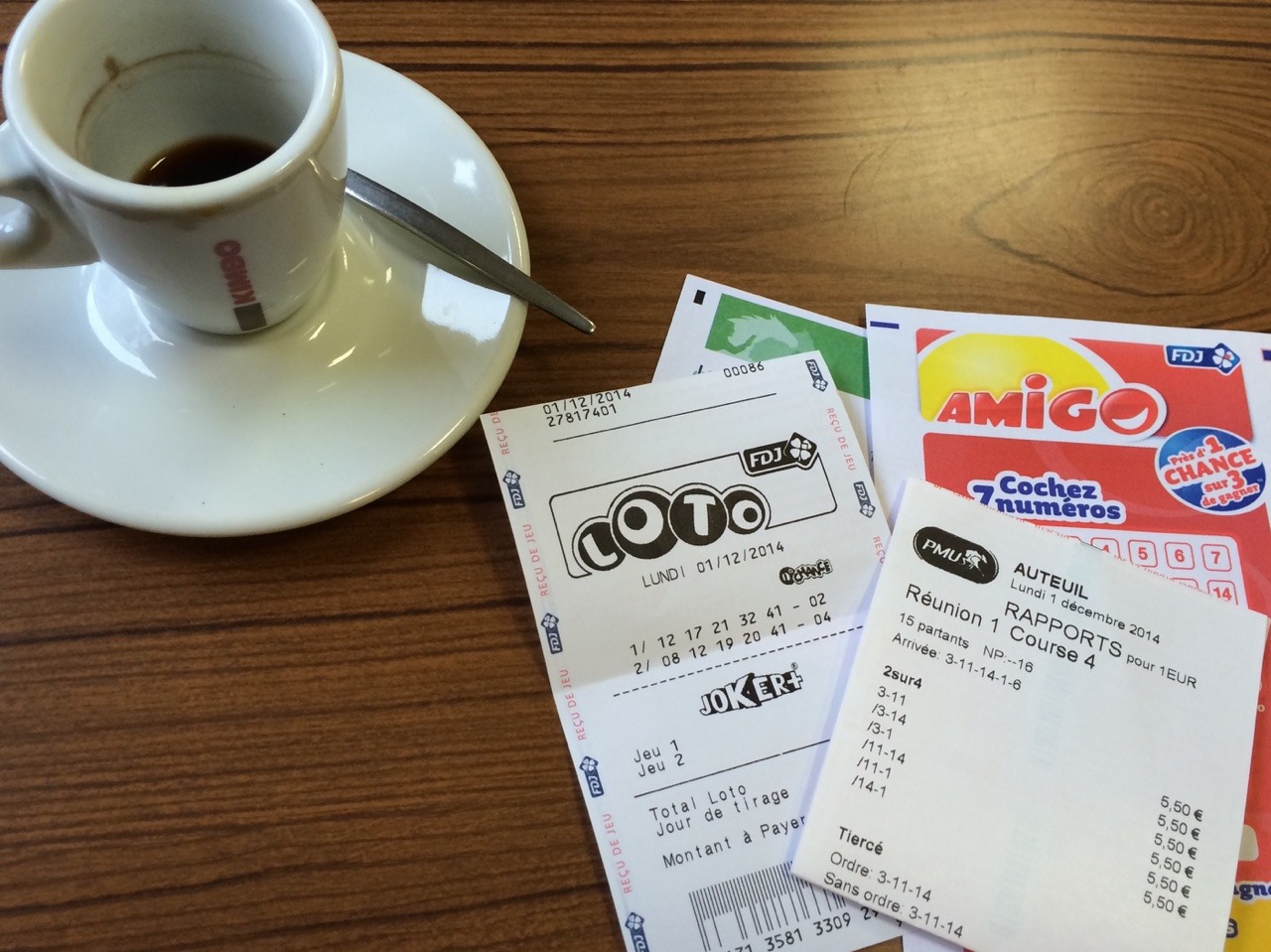
Groupama-FDJ is 50-50 joint venture owned by its two sponsors. If you want to sound très French then pronounce it it Groupama-FDG. Groupama is a giant French mutual insurance company – and rival to the Ag2r – and with a rural logo which hints at the original name Groupe des Assurances Mutuelles Agricoles. FDJ is short for La Française des Jeux. It’s the French state lottery which has just been privatised but has committed to fund both the men’s and women’s teams for several years so no change on the horizon. Team owner Marc Madiot is a keen patriot – he’ll blast the French anthem on the team bus for Bastille Day and keeps national champion’s jersey free from sponsor logos – but with a sideline in Americana thanks to his cowboy boots and a Corvette in the garage back home.
- The team began in 1997 and has kept the same sponsor all along; in 2012 it was FDJ-BigMat
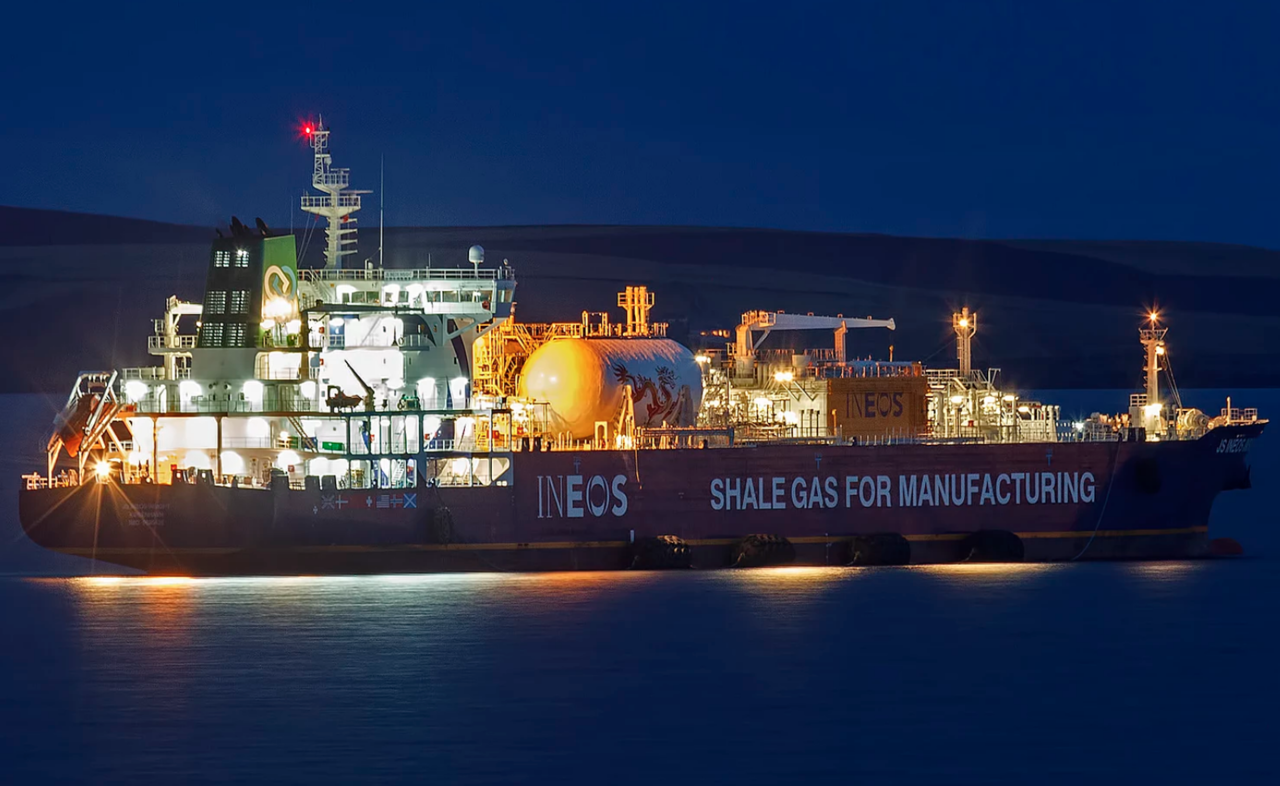
Team Ineos is the new name for Team Sky after Ineos bought the team last spring. Ineos is a petrochemicals company that mainly makes plastics and manufactures and supplies the chemicals to make the plastics that surround us and it’s grown so big it’s now drilling for oil and gas for raw materials and energy. It’s a private firm owned by James “Jim” Ratcliffe, Britain’s third richest person. He bought the cycling team for fun and also has a sailing team, has bought French football club OGC Nice and is now a sponsor of the Mercedes Formula 1 team. Why? Because he can and it must be fun to own all these teams but they help with dealmaking too, especially the Formula 1 connection which offers VIP opportunities galore. If you want to know why Egan Bernal, Geraint Thomas and Chris Froome are all riding the Tour de France it’s because the big prize is what counts for Ratcliffe.
- The team began in 2010
Israel Start Up Nation is the result of the Israel Cycling Academy takeover of the Katusha-Alpecin team and by acquiring the World Tour licence the team jumps up into the top level. It’s not the Israeli state, instead it’s financed by Israeli-Canadian real estate billionaire Sylvain Adam, a keen cyclist who recently migrated to Israel and has been spending his fortune to promote the country. He part-funded the Giro’s start last year, backs this team and when Madonna sung at the Eurovision song contest in Tel Aviv last year it was because she was being well-paid by Adams to do so.
- Adams bought Katusha which bought Oleg Tinkov’s Tinkoff Credit systems team which began in 2006
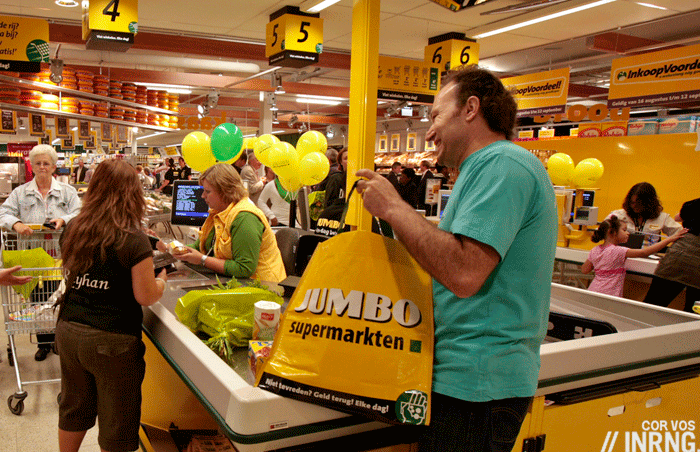
Jumbo-Visma have Dutch supermarket chain Jumbo – say Yumbo – and Visma, a Norwegian IT services company. The team’s shot up the spending rankings, only a few years ago they were among the poorest. Jumbo is family-owned, growing fast across the Netherlands to become one of the leading food retailers and are now expanding into Belgium. The supermarket’s payroll had been managed by a firm which was recently taken over by a Norwegian software and services firm called Visma… which has now come on board with the cycling team too after the connection was made at work.
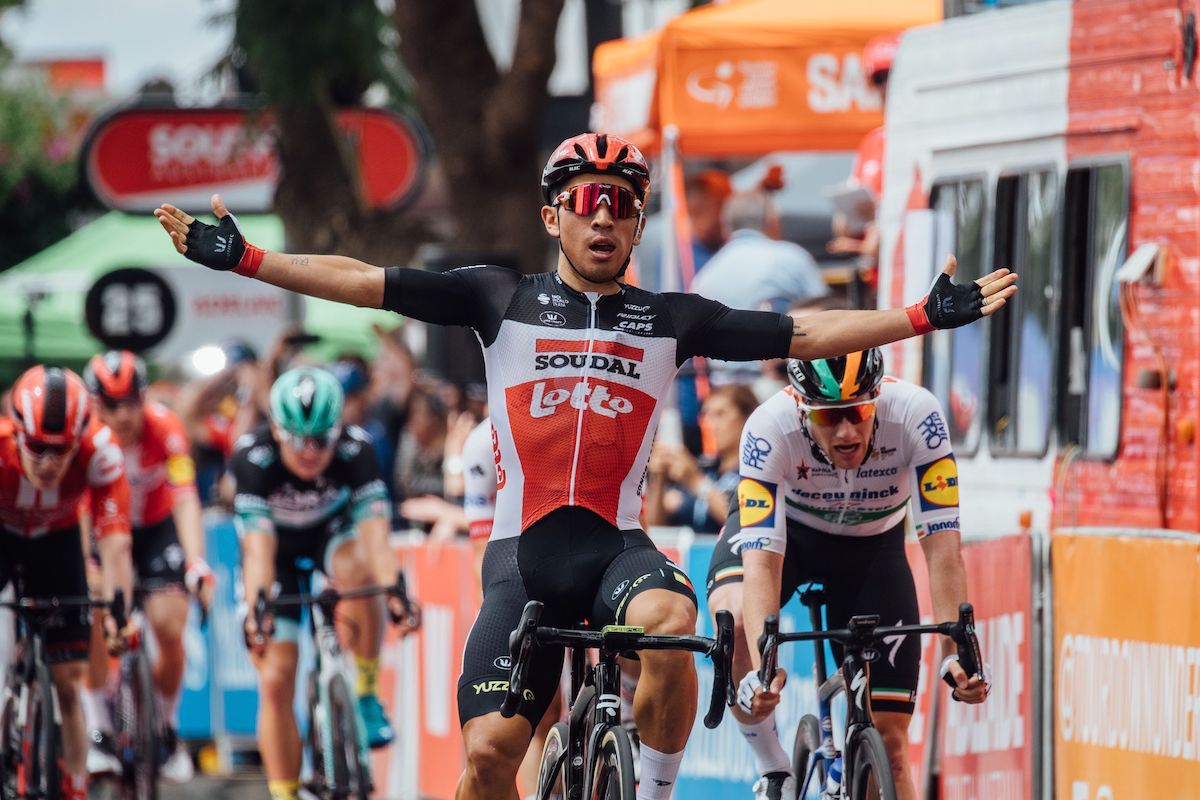
Lotto-Soudal is the longest continuous team sponsorship in pro cycling with the Belgian state lottery backing a team through various name changes over the years ever since 1985. Soudal is a Belgian business making adhesives and sealants, a staple in DIY stores. Cleverly the race with Soudal-Lotto jerseys outside of Belgium because you can buy Soudal products all around the world but only Lotto tickets in Belgium. Despite the pedigree and the government backing this is firmly Belgium’s second best team.
- The team goes back to 1985
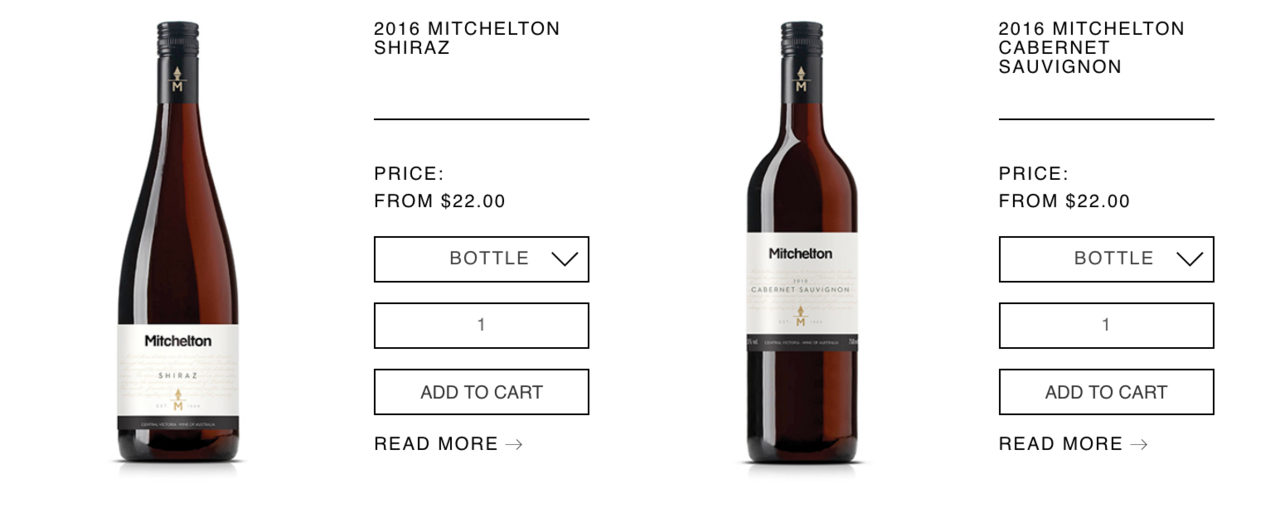
Mitchelton-Scott‘s headline sponsor is a winery in Nagambie, Australia and a business belonging to team owner Jerry Ryan who’s become one of Australia’s wealthiest people thanks to his Jayco caravan business – Australia’s largest vehicle manufacturer ever since Ford and GM/Opel pulled out – and an astute investment in the Walking With Dinosaurs franchise, the result of which is prodigious wealth and he’s ploughed a lot of this back into Australian sport, including this cycling team. Normally alcohol sponsorship is forbidden in France but the team isn’t troubled in the Tour de France because the winery is also a hotel and spa that caters for functions and weddings. They’re hunting for a title sponsor but this always seems to be six months away. Scott is a Swiss-American sports brand, registered in Switzerland but with a US heritage and if you know the frames they also make skis, ski poles and accessories for dirt motor cycling like body protection, goggles and more.
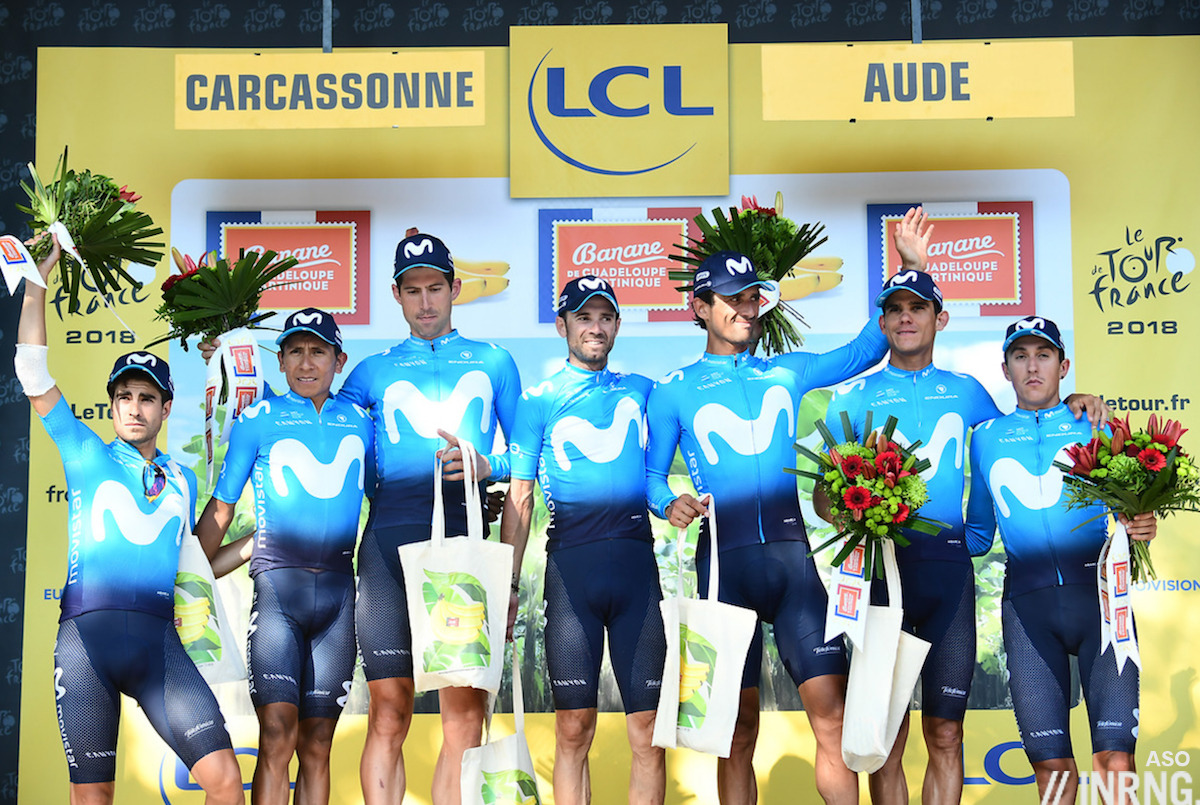
Movistar is a mobile telecoms operator that belongs to Telefonica with activities in Spain and Latin America as well as in the UK and Germany under the separate O2 brand.
- This is the longest surviving team in the peloton with a lineage going back to 1980 and the Reynolds team with José Miguel Echavarri at the helm for most of the time before handing over to Eusebio Unzué and now Sebastian Unzué is picking up the reins.
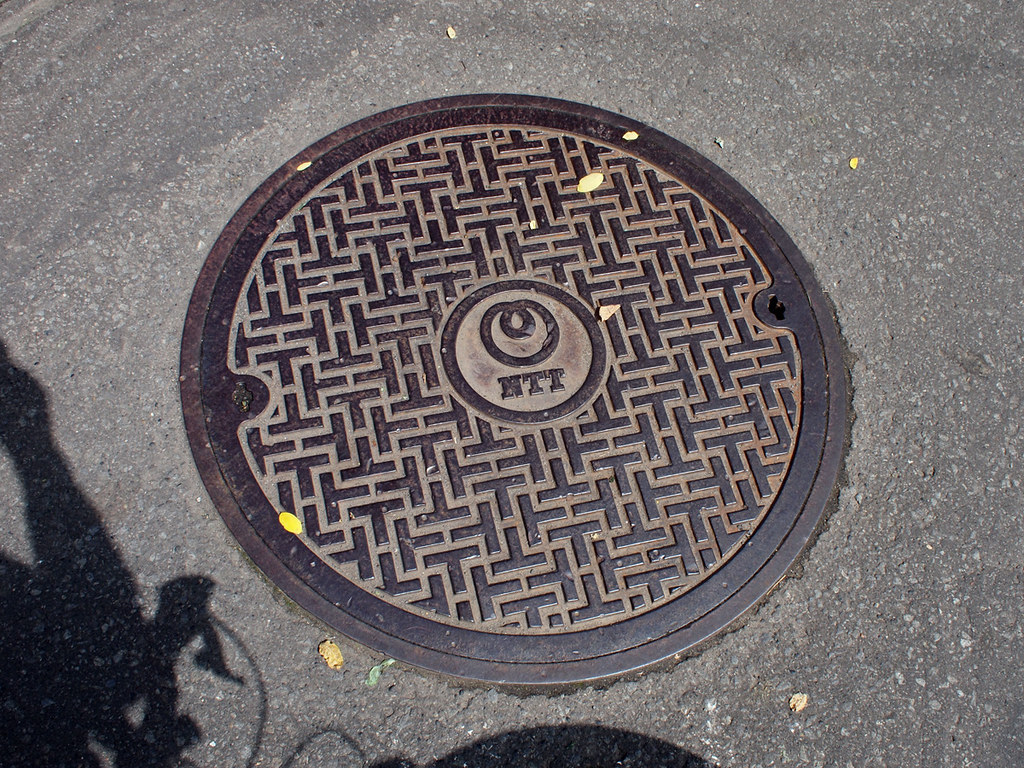
NTT is Japan’s national telecoms company. Several years ago it bought IT services firm Dimension Data and finally rebranded “Di Data” as NTT and so the team has changed its name to suit. The sponsorship remains connected to the IT branch of the firm rather than the phones.
- Dimension Data came on board for 2016 and the team can trace itself back 2008 as MTN, named after the South African telecoms operator
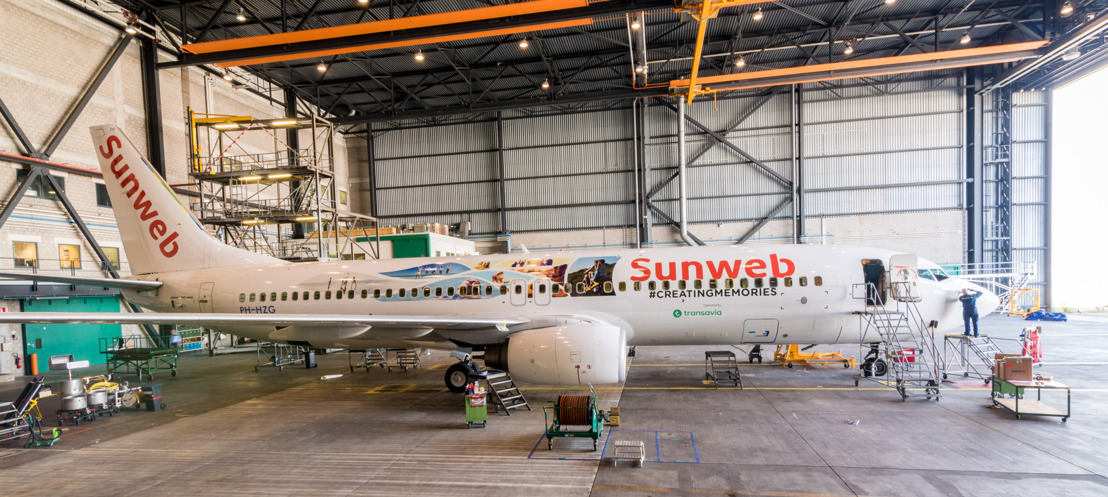
Team Sunweb are backed by a European holiday tour operator that is part of the Swiss-Dutch Sundio Group, essentially a Dutch company but with its HQ in Switzerland. Holiday makers in UK, Germany, France, Denmark, Sweden and the Netherlands buy packages online to fly south: the sun via the web. It already turns over €600 million a year and takes over a million people on holiday. The team’s DNA is Dutch but they fly under a German flag, presumably to help tap a big market.
- A quiet story of growth that goes back to Shimano–Memory Corp in 2005
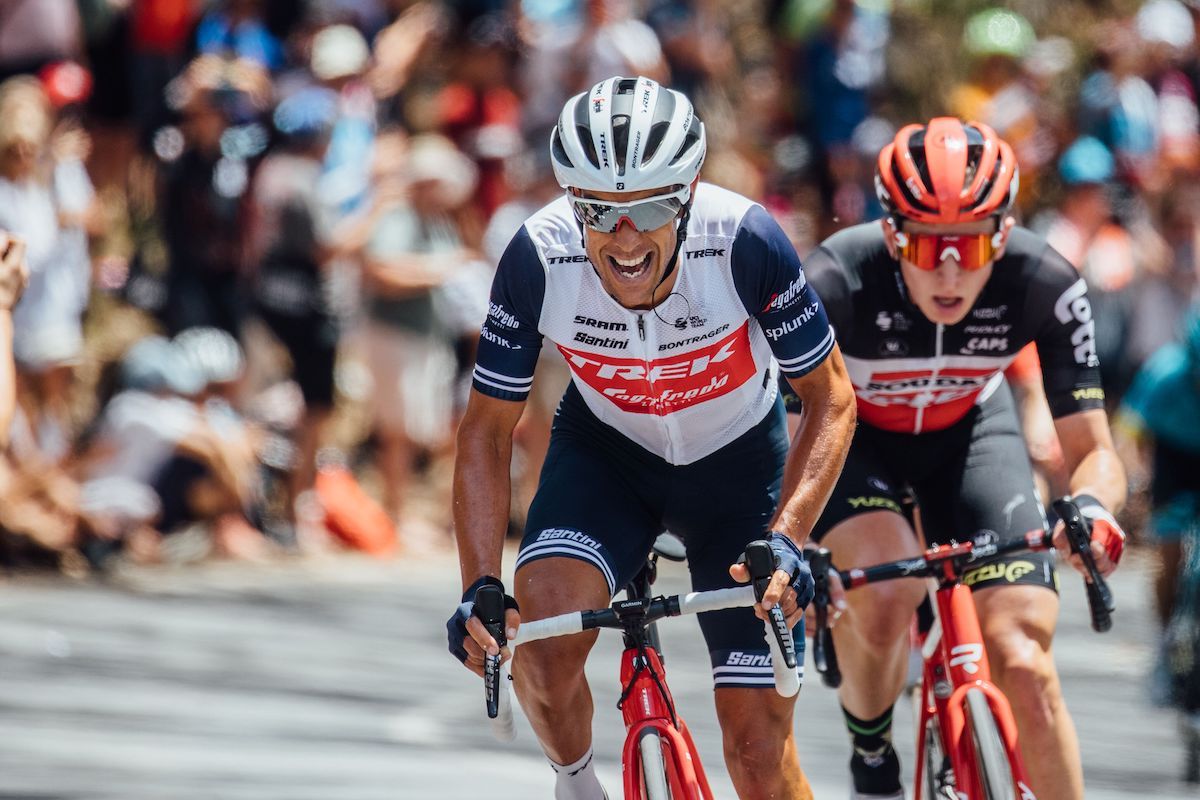
Trek-Segafredo is the combination of US bike brand Trek and Italian coffee Segafredo. Trek should be familiar while Segafredo is an Italian coffee giant controlled by founder Massimo Zanetti that floated on the stock exchange in 2016 and Signor Zanetti is responsible for hiring, read paying, Vincenzo Nibali.
- Formally the team began in 2011 as Leopard-Trek
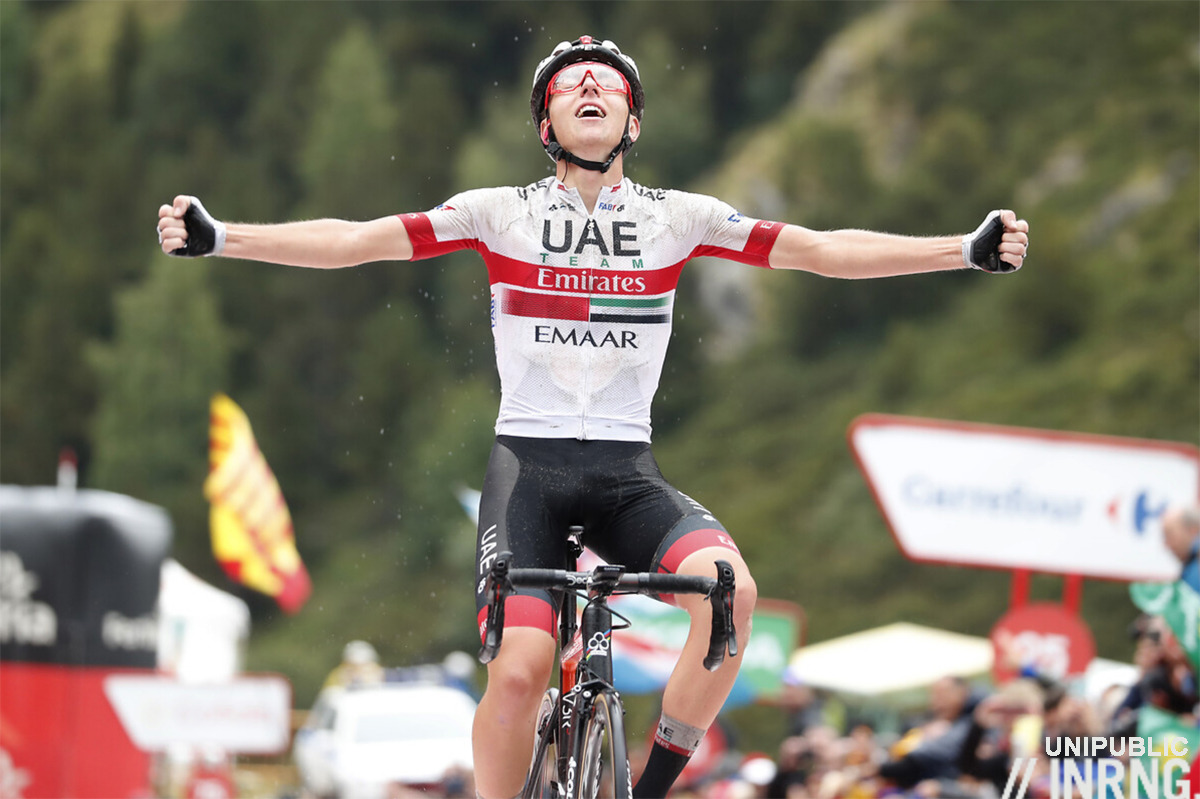
UAE-Team Emirates is backed by the United Arab Emirates, a federation of kingdoms with Abu Dhabi as the capital, a close ally of Saudi Arabia and Bahrain mentioned above and another oil and gas rich state. The Emirates name is also the airline, a big blue chip global sponsor in a peloton of mainly minor and local brands. The team can trace itself back to the old Lampre team and beyond and is gradually moving away from its Italian roots even if they’re on Colnago bikes with Campagnolo and retain eight Italian riders, down from ten last year.
- The team can be traced back to 1990 when it was Colnago-Lampre
Notes
- There’s not much change on 2019 – this is 80% copy-paste of last year’s version – with a nexus of energy-rich authoritarian states as sponsors and rich sugar daddies, with Sylvain Adams replacing Igor Makarov
- Trek is the last bike manufacturer to have its own team and Scott is the only other bike brand to have its name in lights as the likes of Merida, Cannondale, Giant, Cervélo among others have dropped off the naming rights radar, partly down to price as team budgets rise
- All three French teams are mutually-owned firms with a rural clientèle presumably interested in the way the sport can reach parts of France that others don’t
- Other teams have different reaches. Consumer brands like CCC, Sunweb, Segafredo, Emirates and Movistar sit alongside companies like business-facing companies like Deceuninck, NTT and Visma and these sponsors have very different names, Visma for example probably really want to offer VIP moments to clients and investors rather than become a household name
Photo credits: Cofidis podium, Chris Auld photo courtesy of the Tour Down Under; NTT by Flickr’s Ryuichi Ikeda

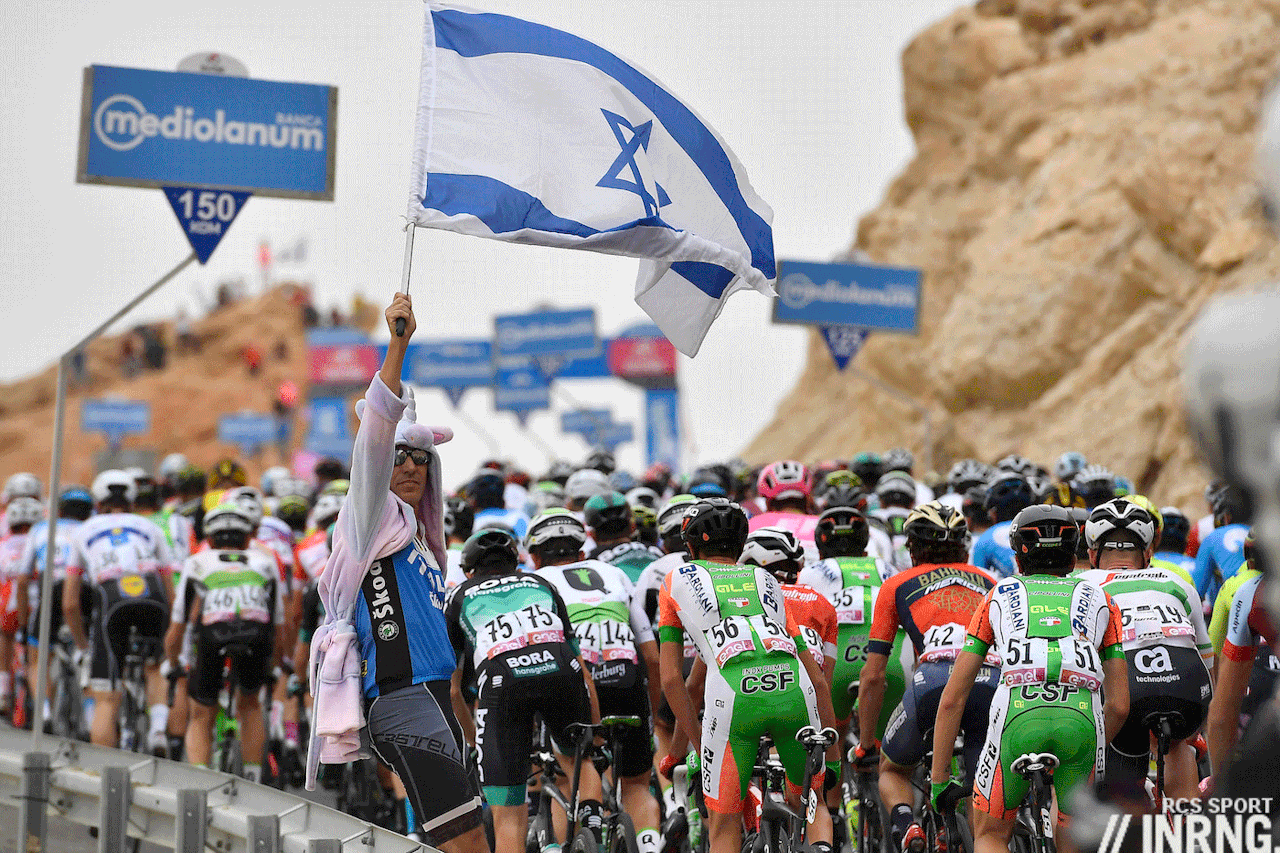
Out of curiosity I had a look at the UCI ProTeam title sponsors and found three bike manufacturers:
Burgos – BH
Fundación – Orbea
Vini Zabù – KTM
Burgos, Provence, Vlaanderen and Wallonie at least suggest that there are four teams co-sponsored by local governments, directly or indirectly. Uno – X Norwegian Development team probably gets a certain amount of sponsorship money that could be followed all the way to Norwegin Ministry of Culture and the state budget.
(
Dont think Uno-X gets any state funding. They hired the half the danish U23 national team and the entire danish Olympic track team (except Michael Mørkøv).
They don’t. Uno-X is a chain of refueling stations, mainly for gasoline/diesel but increasingly also electric and hydrogen. Bigger in Denmark than Norway, so they are also silent sponsors of Riwal-Readynez or whatitscalled.
I’m familiar with the rosters of the two teams and I’d say Uno-X is more Norwegian than Riwal Readynez is Danish. I also know who owns Uno-X.
Anyway, it could indeed be that “Norwegian Development” is there in the name just to make Uno-X look good in the eyes of the average Norwegian or the average local or state politician:-). Or for historical reasons, so to speak, a remnant of the Continental team.
And in any case I already assumed that the public money cycling in Norway gets goes mainly to youth, clubs, national teams and (possibly) races and I gladly accept a correction from those who are better informed.
Guess you think of the ColoQuick team. They have Uno-X listed as co-sponsor. Four riders and one DS on the Uno-X team were previously with ColoQuick
Minor correction, but I believe Ineos now sponsors the Mercedes F1 team, not Williams.
Fixed it, thanks.
I have to say, considering the amount of money the bike manufacturers throw at the sport, you’d think more of them would get recognition as part of the team names; i,e Ineos-Pinarello, JumboVisma-Bianchi, CCC-Giant for example. No bikes, no sport….
Yes, but bike companies are easily replaceable, but name sponsors are not. No team is going to devalue the team name sponsorship by giving it to a company that only provides bikes and a little bit of money. Naming rights costs can be valued at very least 10M (but often much more) for a World Tour Team.
Yes, it’s a thing to be bought and for all the “pro cycling is broken” talk, team budgets and sponsorship has soared in recent years to the point where the bike brands are being priced out.
I’d suggest that it is more of a reversion to the norm than the bike manufacturers being priced out.
There’s so much coverage of equipment going around these days that there’s simply no need to spend the big bucks on naming rights sponsorship – unless you’re Trek with the Trek Factory Racing strategy for capture the attention of cross-discipline riders.
I took a look through the list of ProTour/WorldTour teams and found that 2005-07 had no bike manufacturers in the team names, and 2008-10 had just one (Saunier Duval-Scott in 2008, which became Fuji-Servetto in 2009 and Footon-Servetto-Fuji in 2010).
And then in the 2010s, if you remove BMC (the team was an Andy Rihs personal project closer to the Gerry Ryan model than a normal sponsorship) then you’re still only left with a period of three years where there were four other bike companies with naming rights. Having two this year is in the middle of the range.
There are plenty of other websites, magazines etc which provide lots of coverage about bikes, components, helmets, clothing, shoes and so on.
The bike manufacturers and other suppliers are going to get that coverage regardless of whether they have naming rights, so why bother paying the big bucks?
Other sports have seen the sponsorship scene dominated by online betting firms but not cycling – is this due to a UCI regulation or just market forces?
I’d guess at it being a combination of market forces and that they’d be forced to go white-labelled in a number of countries where races are held.
There are UCI regulations governing the sponsorship of teams and races by betting companies (not just online ones) but they aren’t particularly onerous.
Interesting you highlight Emirates as a relatively unique blue chip sponsor.
Between NTT, Total (proconti), ineos we have a few very blue chip sponsors in the peleton
Add in Movistar (Telefonica)
I don’t really consider Ineos a sponsor. I consider it sugar daddy money. Like Michelton. The decision to sponsor is not based on financial considerations whatsoever.
In a way I agree, because the cost of “sponsoring” the bicycle team is a tiny drop in the bucket for Ineos, but I think it’s a bit different than the traditional sugar daddy.
~ Ineos needs cleaning of their image from gas guzzling/dirty industry to a more green/eco-friendly way of life, so cycling fits with that
~ Ineos also wants to show they are innovative and do things at the highest level so they invest in the top TdF team (as well as the top F1 team)
~ traditional sugar daddies for cycling do it because their love of cycling – so BMC, CCC, michelton-scott, Slipstream, Lance’s stock market backer, etc fall into this category. Ratcliffe does a little because he loves supporting sports teams, but I’m not sure he does it because he loves cycling (he may love it now, but did he before?)
The eco “green-washing” is secondary, particularly since the much larger F1 sponsorship completely contradicts any eco-friendliness aspect of cycling. There might be some marketing advantage for Ineos, just like Mitchelton, but no actual marketing manager would have made a financial decision to spend that amount of money on cycling for either of those companies. I think Ratcliffe just likes winning. These are toys.
I enjoy these explainers, especially for us North Americans who don’t get much day-to-day exposure to a lot of the brands that we see on the biggest stage of our favorite sport. Thanks for providing it!
Couple of quick questions about the origin / lineage of some of the teams, though — didn’t Tinkoff come out of the old CSC team, and BMC from Phonak?
Tinkoff Credit Systems was a team he sponsored way before he got involved with CSC.
BMC was not a successor to Phonak. Andy Rihs had already confirmed he was leaving Phonak and starting a new Continental team for 2007 (BMC) and a deal had been done for the Phonak team to continue as iShares in 2007. The iShares deal was cancelled once Floyd Landis tested positive and the team closed.
Thanks for this – always a highlight of a new season to see who puts up the money. If I’m generous with who I put in the consumer product category, WT cycling doesn’t look so terrible. That’s assuming Mitchelton, CCC, EF and Deceuninck-Quick Step get real return on their investment vs simply being rich guys who own those companies and like cycling. About half the teams are funded by those types of sponsors with the rest by 4 corrupt governments, 2 gambling interests, 1 resource extraction business and a couple of bike companies. If we could get one or two more based in the traditional cycling countries (Italy and Spain) things might be looking pretty good!
Movistar belong firmly in the consumer product category.
There’s another category to consider – sponsorships aimed at B2B sales rather than direct consumer sales, with VIP events for dealers and importers being a big feature and the exposure to consumers being secondary. Sponsors in this category would include Deceuninck, Bora, Hansgrohe and probably even Segafredo.
Bahrain, Astana and UAE – who’s the fourth government sponsor? Israel Start Up Nation is private money.
In the end the B2B stuff you refer to ends up being purchased by the general public so I didn’t make a distinction there. Perhaps a better example would have been Mapei or Fassa Bortolo since the consumer probably isn’t insisting his house be built with those products – it’s the contractor’s choice. But Giorgio Squinzi of Mapei could also have been lumped in with “rich enthusiasts”, a category I skipped as an effort to be generous and assume teams backed by Gerry Ryan, Dariusz Miłek, Zdeněk Bakala, etc. actually help to increase their company’s bottom line above and beyond what is spent on the team.
I looked around a bit at Israel Start Up Nation’s philosophy and lumped them in with “despotic regimes” as J Evans described them below as the other 3 seem to be a mix of financial sources from oligarchs, petro-sheiks, etc. as well, so one could argue public vs private all day long.
There may (although who knows) have been more doping in the past, but I don’t remember (correct me if I’m wrong), so many teams being sponsored by despotic regimes. It’s a real feature of cycling these days. Bahrain, Israel, Kazakhstan, UAE… it’s a lovely bunch.
I suppose there were the various national teams competing in the Tour in the 1930s? 1938 TdF saw teams from Nazi Germany and Fascist Italy and Spain.
It really comes to something when one has to go back to the horrors of fascism to find worse ‘sponsors’ than what we have now.
Do other sports (I don’t follow any) have such governments sponsoring teams?
To be fair, I’ve not done an exhaustive trawl of the intervening period.
But it makes some sense, as pro cycling has only recently expanded from being a West European sport, so you have to go back to the era of despotic regimes in Western Europe. I suppose you could point to the likes of the Soviet teams in the Peace Race, but generally Eastern Europe’s athletes weren’t often permitted to compete with the West’s.
Other sports are not immune. Football’s obviously the biggest, and most international, and so the most attractive to “sports-washing”. Man City are owned by Abu Dhabi, Paris St Germain by Qatar, who have also sponsored Bayern Munich and Barcelona. Emirates sponsors Arsenal and Real Madrid. Gazprom sponsors Shalke. And so on.
And until recently, Katusha was related to the despotic iron curtain bunch…
But, Israel? I thought it was owned by a Canadian real estate mogul. He definitely has Israel nationalistic plans, but he doesn’t qualify as a despot.
He’s promoting a despotic regime. (Whether or not that is with their help we don’t know, as that regime often does such things secretly.)
I’m disappointed to see that antiSemitism is allowed on this website without argument.
I don’t know if labelling Israel as despotic (it’s a democracy) is anti-semitic, I might have missed it but nobody has mentioned religion. But there are other forums to debate the Israeli government and it might just be easier to switch off the comments for a while if people trade arguments that have nothing to do with racing bicycles.
Agreed and I’m sorry if my comments were in any way taken as anti-Semitic, that wasn’t my intention and I definitely don’t believe that.
I was going to comment that who is anyone in US, UK, Canada, etc. to judge as our countries are “democracies” but have done some pretty awful things in the past (and the present).
Ok, I’m done commenting on this, back to bike races and sorry for getting caught up in this comment thread.
Perhaps you are deliberately trolling LOL. But suggesting that traditional Australian car manufacturer HOLDEN is Opel would be a call for a fight in certain households and gatherings of car enthusiasts. Opel has never manufactured in Australia and has only very briefly sold any cars here as Opel.
Holden, a GM company based there range on a variety of GM and Asian companies including Vauxhall (mainly), Opel, Nissan and others. Certainly not opel.
Cheers. I laughed when I read your comment.
“Australia’s largest vehicle manufacturer ever since Ford and Opel”
Fair point, put Opel above first but amended it to GM/Opel. I know Holden has a loyal fan base but they look a lot like Opels to outsiders 😉
The Commodore was based on the Opel large car of the day (which was where the Commodore name came from in the late 1970s) except for the last couple of Australian-built Commodore models, but before that they were mostly based on US-sourced GM designs.
Before Holdens was bought by GM around the time of the Great Depression, one of the companies they did local assembly for was Ford!
Or Chevrolets to Americans. Sometimes even the models are named the same.
I’ve always thought of Vauxhall cars as a rebadged Opel for the UK market, the two being interchangeable brands under GM ownership.
I’m from Canada and I thought Holden and Open and Vauxhaul and Chevy and Pontiac and Buick and Oldsmobile were exactly the same, no? Isn’t it just one company making the same garbage cars but putting different badges on them? Dumbest production/marketing strategy there is.
lol I just looked it up and all of their cars are shared with GM or Daewoo. They don’t have a single unique vehicle. Even the mighty Monaro was a Chevy Lumina with a beast of an engine (based off the Corvette).
Back to bicycles please!
Not that it matters, but Vauxhall/Opel is now owned by PSA, having been offloaded by GM a few years ago, and the new Corsa model is based on a Peugeot platform. Not that I’d ever buy one.
The Monaro was actually the original vehicle, converted to left hand drive as the Chevy Lumina and Pontiac GTO.
Later on, Holden sold the VE Commodore in the USA as the Pontiac G8 and the VF Commodore as the Chevrolet SS, and Holden designers also used the VF chassis when they designed the 2010 Camaro for Chevrolet.
Holden also did more than their fair share of work for other GM divisions. It’s only due to their designers that we have a Camaro again.
Skoda provide cars and support for the TdF and many other races and in doing so must pay similar sums to those of some WT title sponsors. Is this because they see that approach as better value, and more appropriate to thier product, thus associating with the sport and events without the risk of opprobrium that team sponsorship can sometimes bring.
Or do I misjudge the relative costs, and Scott’s sponsorship of say Mitchelton is much more substantial than Skoda’s of events and the sport in general?
How much Skoda pay isn’t clear but it’s a big investment. Sponsoring the event rather than the race has been a safer option for many brands worried about linking up with a team and getting their name trashed à la Festina.
I believe FIAT supplied cars to all three Grand Tours for awhile and perhaps SKODA did as well?
Whoever has the tow truck contract for the Giro must be happy about all the extra work they’ll be getting now RCS has dumped Honda and brought in Alfa Romeo.
That old “Fix It Again, Tony” stereotype dies hard, eh? In case you didn’t know it’s FCA (Fiat Chrysler) nowadays. After 30+ years of being in Italy and driving plenty of Renault’s, Fiat’s, Ford’s and Citroens the reliability of the FIAT-produced vehicles (regardless of whose brand name was on them) has been no different from the others in my experience.
OTOH, my experience with German cars (SKODA’s are kind of Czech-made VW’s) in general, both while working at an independent auto garage and my in-law’s experiences with their own BMW’s and Mercedes’ suggests the electrical gremlins those cars regularly exhibit might keep those tow trucks just as busy with the SKODA’s.
Then there was the infamous car failure suffered by SKY one year – a drink cooler spilled over and shorted out the battery? Was that a Jaguar? One could make a lot of jokes about the quality of British electronics going back to Lucas, aka “The Prince of Darkness” Finally, if memory serves me correctly the team van that we watched more-or-less melt-down on the Zoncolan a few years ago had a VW logo on it.
Larry, there are reliability indexes that cover how cars are for thousands of people, rather than the experiences of one guy. Japanese and South Korean manufacturers are always around the top; British, French and Italian near the bottom.
J Evans – fair enough, where are the SKODA’s on your lists? My negative experience with German automobile electrical gremlins is based on a bit more than on “the experiences of one guy” since I was the service writer for an independent repair shop in the USA while I put my wife through grad-school.
Fiats were not sold in the USA so we had zero experience with them so I added the only experience with them I actually had, the 30 years of renting various makes and models in Italy and France. Fiat produced vehicles branded as Peugeot and Citroen during this time as I recall many 9-passenger vans over the decades. I remember a FIAT that we had to push-start for some reason as well as a couple of Renault’s and Citroen’s that simply blew up and had to be towed.
When it came to buying my own personal vehicles Japanese makes were my choice over anything from Germany. I wouldn’t guess VW products made in Spain (SEAT) or in the Czech Repubic (SKODA) would be any more reliable than my in-laws BMW’s and Mercedes’ or the hundreds of VW’s that were towed-in back when I was the service manager, so claims that FIAT’s are unreliable jokes vs SKODA’s struck me as little more than the typical tired stereotype from someone who is talking out of their a__.
Larry never lets evidence trump anecdote. And FCA has just been taken over by French giant PSA anyway.
FCA is the only company where a PSA takeover will improve the reliability of the brand.
“…evidence trump anecdote.” OK, where’s the superior-reliability rating for SKODA in that “evidence’? If you want to be snarky and enjoy the “Fix-It-Again-Tony” Italian automobile stereotype, be my guest, but it’s a stereotype nonetheless. You know, like the one about people with British accents being intelligent.
50 years ago this very night, there was a very special auction for a very special bus –
https://www.youtube.com/watch?v=TmfQQC1bsf4